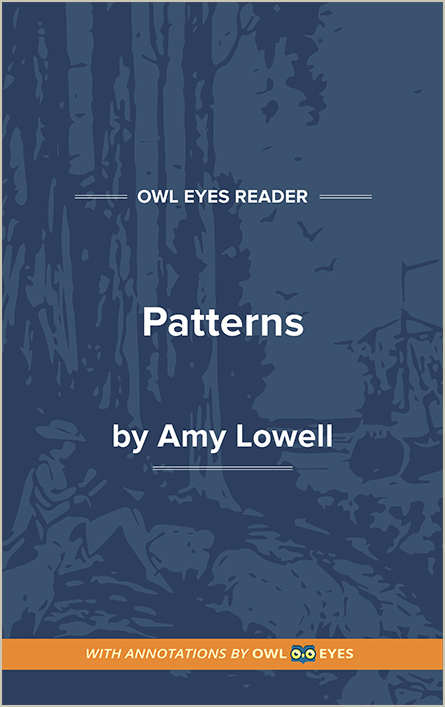- Annotated Full Text
- Literary Period: Modernism
- Publication Date: 1917
- Flesch-Kincaid Level: 6
- Approx. Reading Time: 3 minutes
Patterns
While at first “Patterns” appears to be a straightforward celebration of springtime, Lowell’s poem quickly defies readers’ expectations. The poem follows a speaker walking through her garden and commenting on the flowers and fixtures. She begins to dive into her imagination, picturing her lover and erotically fantasizing about his embrace. The tension between the joy of spring and the speaker’s seemingly dark perspective is explained towards the end of the poem when the reader realizes that her lover has died in a war far from home. Suddenly, the images of spring and fantasies about her sexuality become tragic: she has lost the “spring” of her life and will never fulfill her desires. The dominant motif throughout the poem is the speaker’s constraining pink and silver dress, a representation of the various structures that confine the woman and dictate her actions. She must not only mourn her lost lover but also the loss of her own life. The often quoted line “I am a rare Pattern” is actually a tragic statement of the patterns that control and destroy the lives of the speaker and her lover. For when he suffers his physical death, she becomes subject to the death of her hopes, aspirations, and potential.
- Annotated Full Text
- Literary Period: Modernism
- Publication Date: 1917
- Flesch-Kincaid Level: 6
- Approx. Reading Time: 3 minutes

